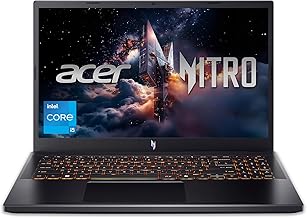The exponential growth in artificial intelligence (AI) technology has opened the floor to intriguing discussions around whether AI might one day eclipse human intelligence. Human beings are known for distinctive capabilities like creativity, empathy, and adaptability, yet AI has proven its prowess in tasks that require rapid pattern recognition and swift information processing. To appreciate the nuances of this comparison, one must delve into the distinct realms of convergent and divergent thinking. AI is adept at convergent thinking, demonstrating an impressive ability to discern patterns and trends efficiently. Humans, on the other hand, excel in divergent thinking—our minds are fertile grounds capable of fostering original ideas and conceiving a multitude of solutions to a given problem.
The exponential growth in artificial intelligence (AI) technology has opened the floor to intriguing discussions around whether AI might one day eclipse human intelligence. Human beings are known for distinctive capabilities like creativity, empathy, and adaptability, yet AI has proven its prowess in tasks that require rapid pattern recognition and swift information processing. To appreciate the nuances of this comparison, one must delve into the distinct realms of convergent and divergent thinking. AI is adept at convergent thinking, demonstrating an impressive ability to discern patterns and trends efficiently. Humans, on the other hand, excel in divergent thinking—our minds are fertile grounds capable of fostering original ideas and conceiving a multitude of solutions to a given problem.
The Nature of Intelligence
The vessels through which intelligence manifests—humans and machines—stand in stark contrast. The human brain, with its extraordinary complexity and synaptic abundance, forms the underpinnings of our ability to comprehend, reason, and innovate. Conversely, AI's capabilities are bound by the limits of hardware and computational speed. Yet, as AI technology forges ahead, it challenges the notion that it may one day replicate—or even exceed—the broad scope of human intellect.
AI and Human Ingenuity
Despite AI's impressive progression and its triumphs over human performance in certain areas, it is vital to recognize the innate strengths of human intellect. In the realm of convergent thinking, AI's affinity for quickly pinpointing patterns and processing vast data sets is unmatched. Conversely, human intellect glistens with divergent thinking attributed to our creative spirit and versatility in problem-solving. The complexity and interconnectivity of the human neural network empower us to assimilate knowledge rapidly and to deftly operate within a multitude of complex scenarios concurrently.
AI, although relentless in its pursuit of speed, remains tethered to the specifications of its hardware. Nevertheless, in tasks where speed and efficiency are paramount, AI often eclipses its human counterparts. Yet, human intelligence remains unchallenged in its comprehensive blend of cognition, reasoning, and creativity. The debate on AI superseding human intelligence is far from settled, but there exists an opportunity to explore the potentials of both entities in tandem.
Embracing a Collaborative Future
The integration of AI in everyday life unlocks novel prospects while simultaneously presenting unique challenges. It beckons us to cultivate a synergistic relationship between humans and AI, aiming for a unified objective. By championing ongoing refinement and cooperation between our biological brains and artificial intellect, we can collectively confront convoluted problems, propelling forward the domains of programming, artificial intelligence, and machine learning.
This cooperative approach will not only facilitate solution-finding but also ensure that innovations in AI technology are oriented towards enhancing human capability rather than entirely supplanting it. The collective goal should be to mutually enhance one another's capabilities and strive for a world where the combined strength of human and artificial intelligence is harnessed for the common good.
As we stand on the brink of a future teeming with AI, it becomes increasingly clear that working side by side with these intelligent systems will catalyze progress across all fields. Poised at the intersection of humanity and technology, we have the unprecedented opportunity to shape a world where AI complements and amplifies our innate human intelligence, driving us towards an era marked by unbounded ingenuity and collaborative breakthroughs.
Information for this article was gathered from the following source.


![The Coin Collecting Bible: [5 in 1] The Most Complete and Updated Guide from Beginners to Advanced to Buy and Sell the TOP and Rare Coins of All Time](https://m.media-amazon.com/images/I/61Mo3wwmNeL._AC_UL320_.jpg)

